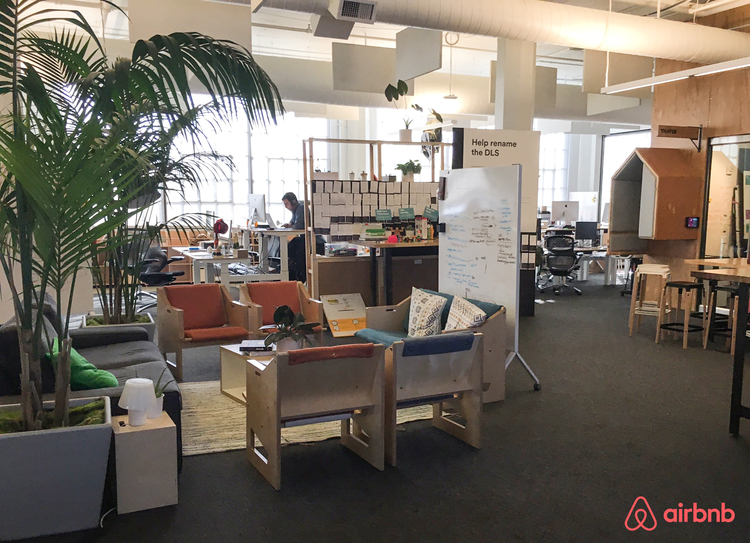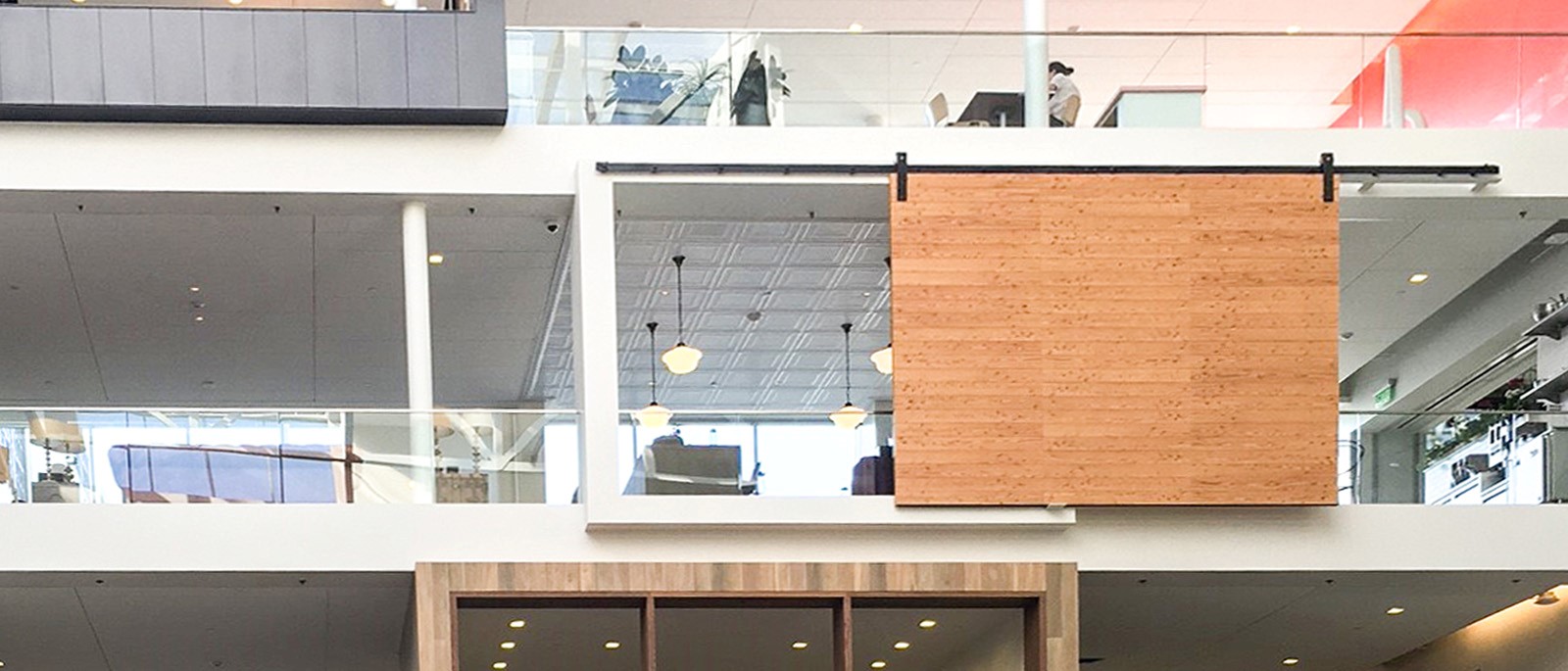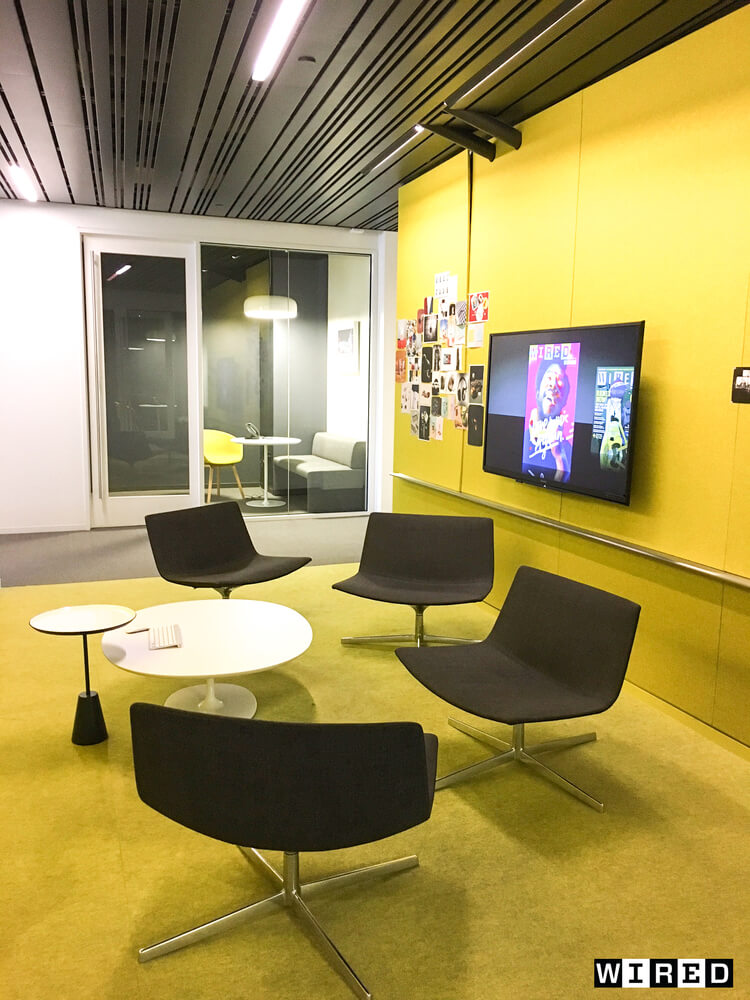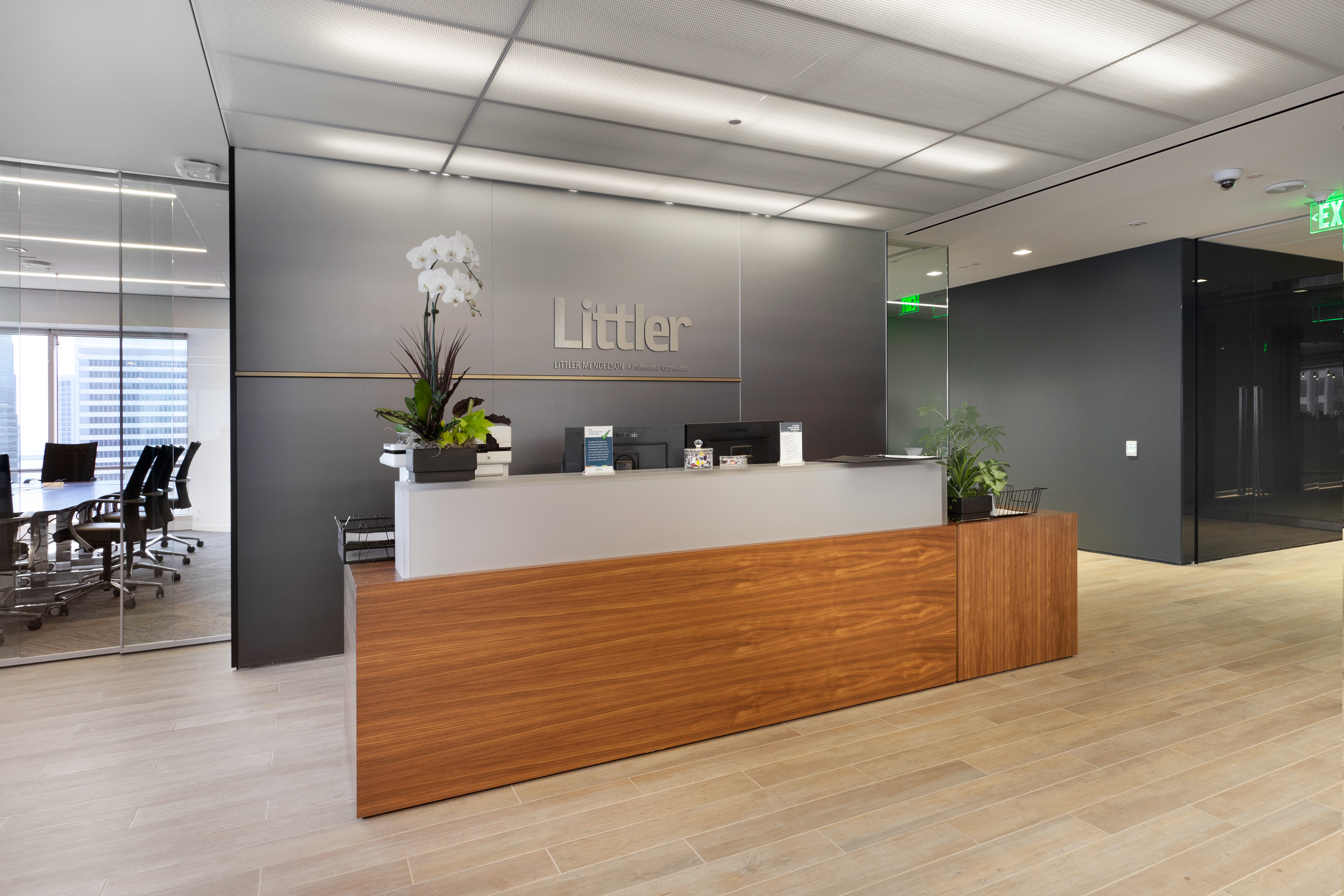Progressive companies realize space not only reflects culture, it can change it. If one wants to understand what the future of office space looks like, it seems like a trip to San Francisco, the epicenter of the technology culture, would be a good place to start. That is why I found myself on a four-day whirlwind tour of eight technology company spaces this spring. I visited Yelp, GitHub, Ripple, Wired, Pandora, Airbnb, LinkedIn, and Pinterest. While each space had a very different look, some distinct themes emerged.
OPEN PLAN
The first thing I noticed was an absolute lack of private offices. Only Wired (which had only six in its entire space) had any private offices. Other than Wired, Not. A. One. Not only that, there were no private cubicles. EVERYONE sits at bench seating. Some are configured in honeycombs; some in straight lines. Regardless of the configuration, the message is clear: collaboration is king and hierarchies are dead.



Further evidence of this message is Airbnb’s “executive triangle”. In this open area, Airbnb’s founders will often meet for high level discussions. As you can see from the photo below, even this space is not “private”.

When asked why open plan is the preference, each company made it clear that saving space (and rent overhead) was not the primary goal (although most occupy to a density of 6:1,000 sf). Rather, they wanted to encourage teamwork, and have flexibility to grow and reorganize as teams/projects change. GitHubbers have total freedom to self-assign their work spaces. Some never sit in a workstation instead choosing to float about while others take up residence.

All of the furniture in each of these offices is standardized and exactly the same size. Most of the companies had purchased adjustable height furniture reflective of the wellness focus also seen throughout these companies.
Another stand-out characteristic of all of these tech spaces? With the exception of LinkedIn, none of them have a large mechanical building core. Because most are repurposed warehouse spaces, large center areas for storing goods were a key element of the buildings’ original designs and the core was placed on the perimeter. For tech companies, the big central open spaces allow for people to be at the center. Everything is open and everyone feels connected. Come back to the blog next week for Part II: Conference & Quiet Rooms.




[…] The furniture in AtlasRFID’s space was selected to further enhance the open feeling. Richie Hamer with Business Interiors helped AtlasRFID select workstations that are no taller than 50”. This height provides seated privacy while not impeding the visual horizon. On the fourth floor, software developers and engineers sit at bench seating with numerous monitors mounted from the ceiling in the area. The bench seating, a Knoll product, has been such a success that AtlasRFID is in the process of expanding it. (Read more about bench seating at San Francisco tech companies here.) […]
[…] instance, other than the actual San Francisco Wired offices which I visited last year, I have never seen another library that included every published issue of Wired magazine. […]